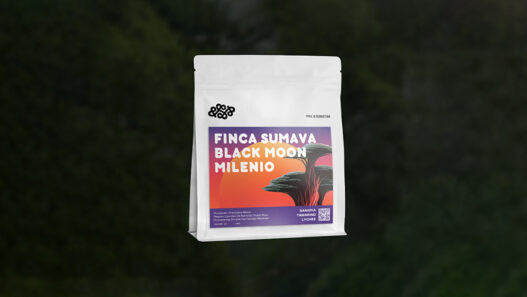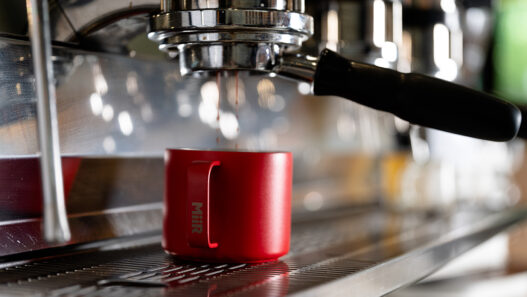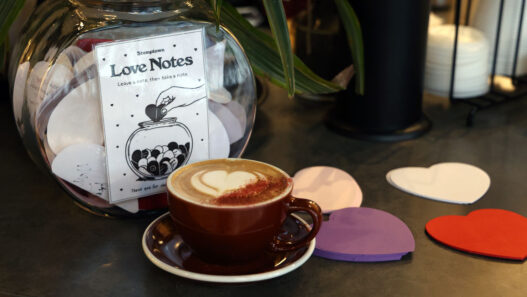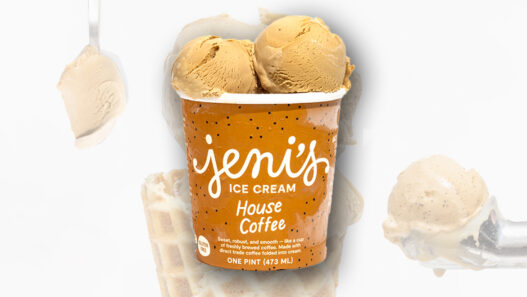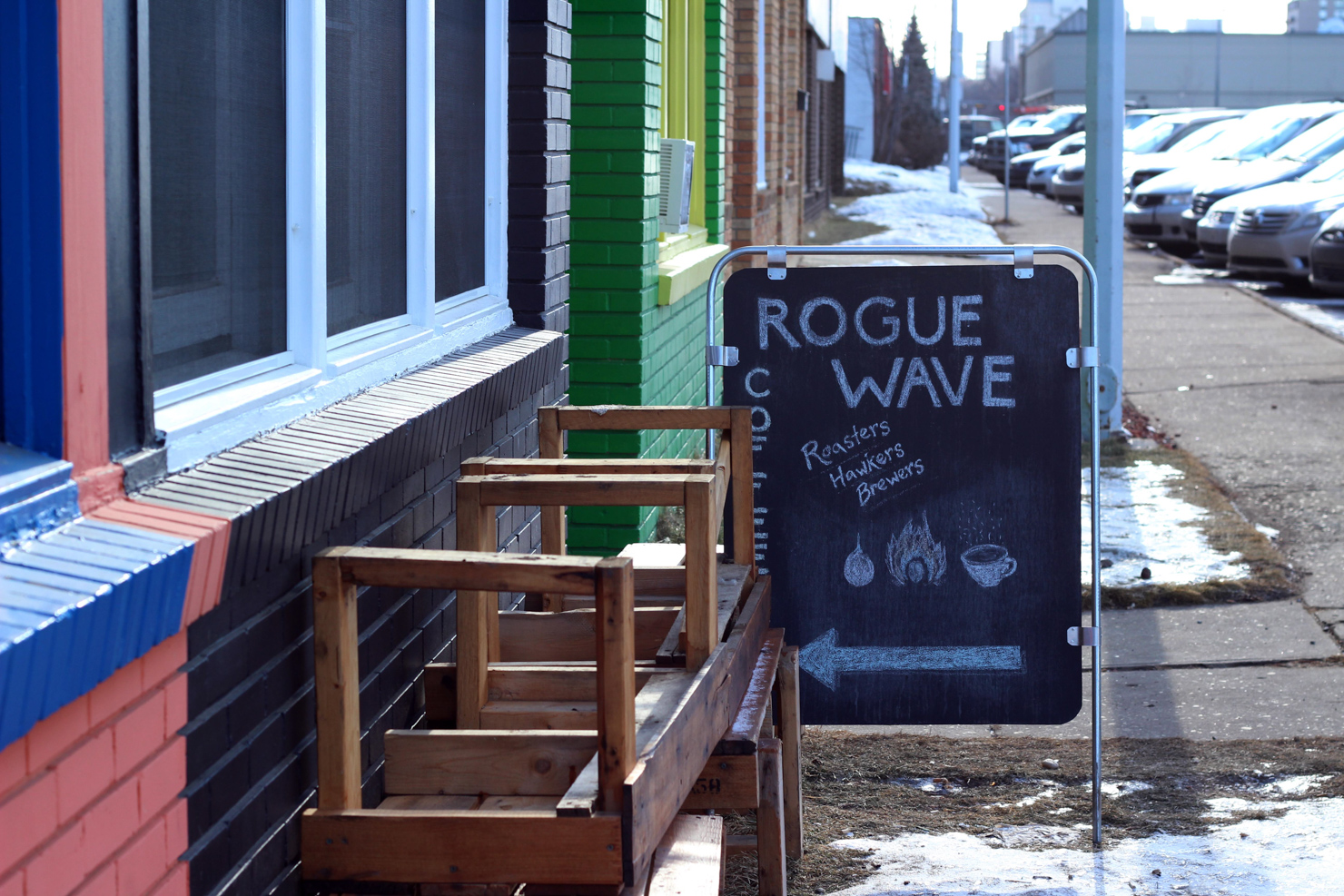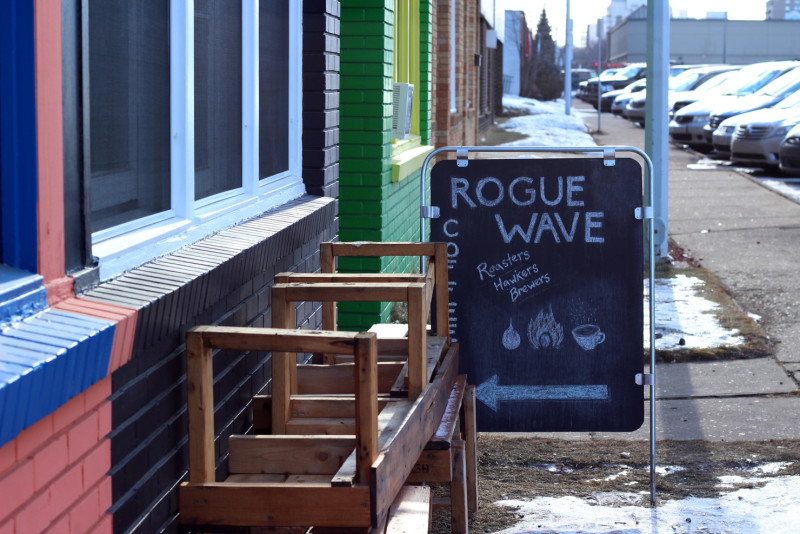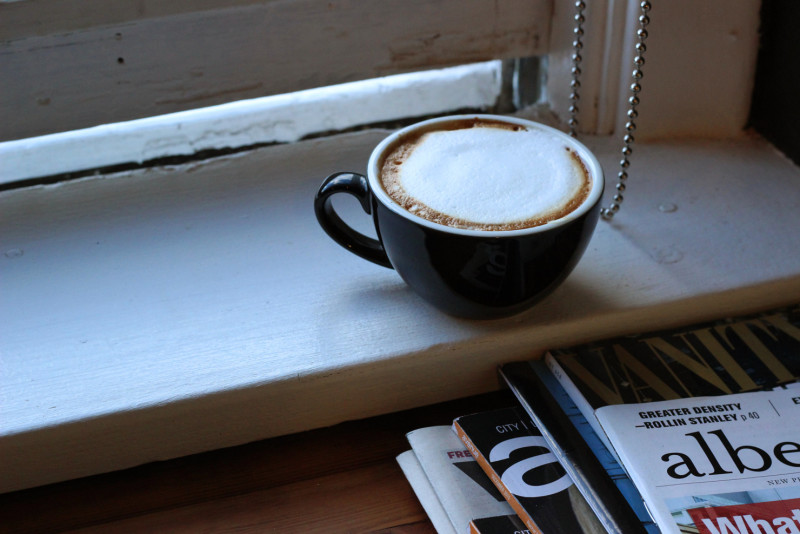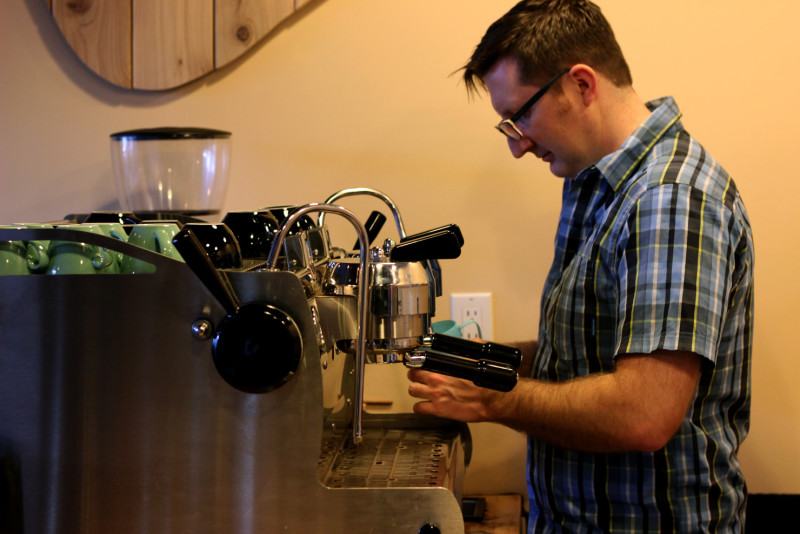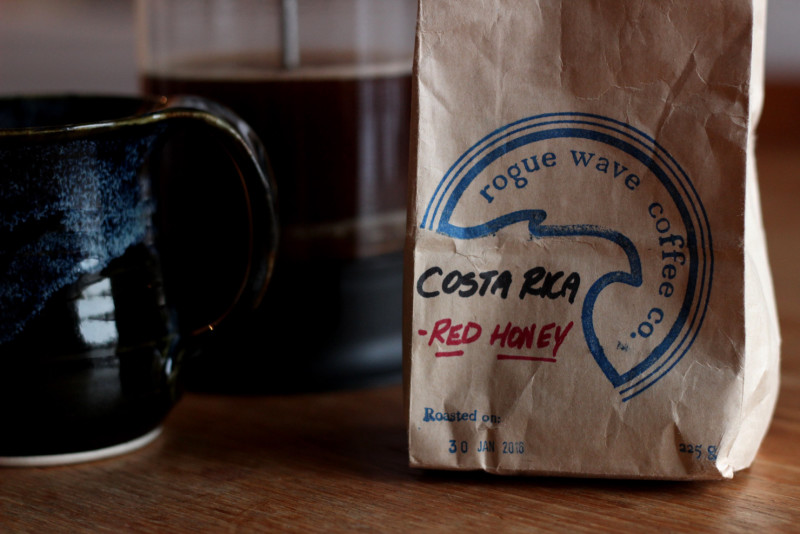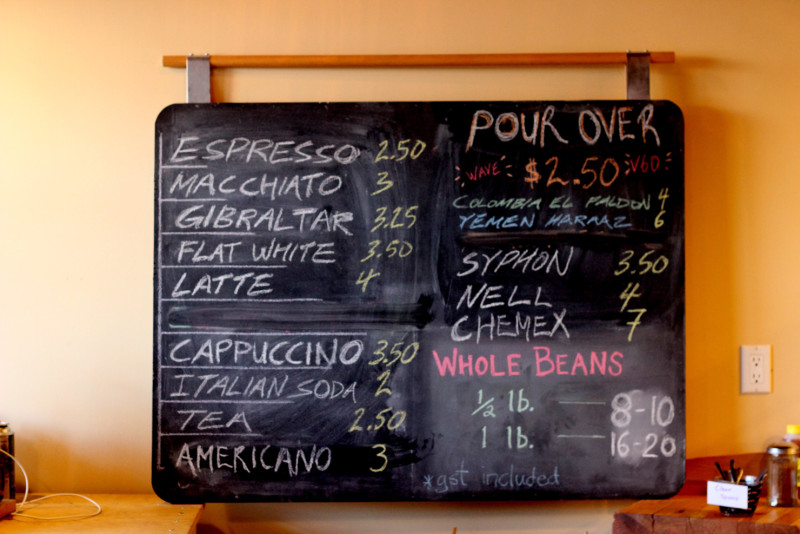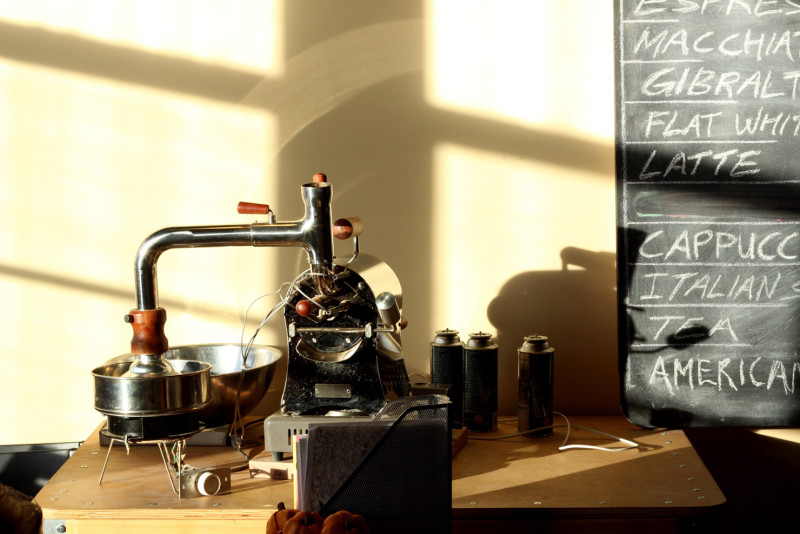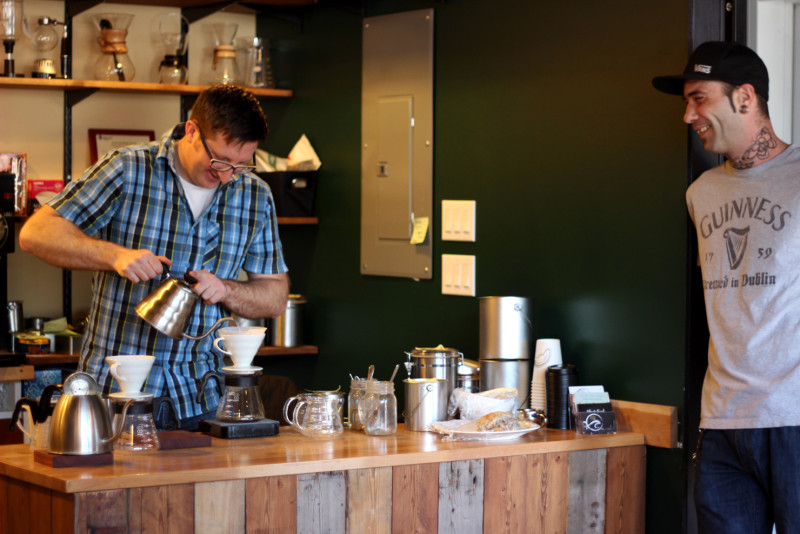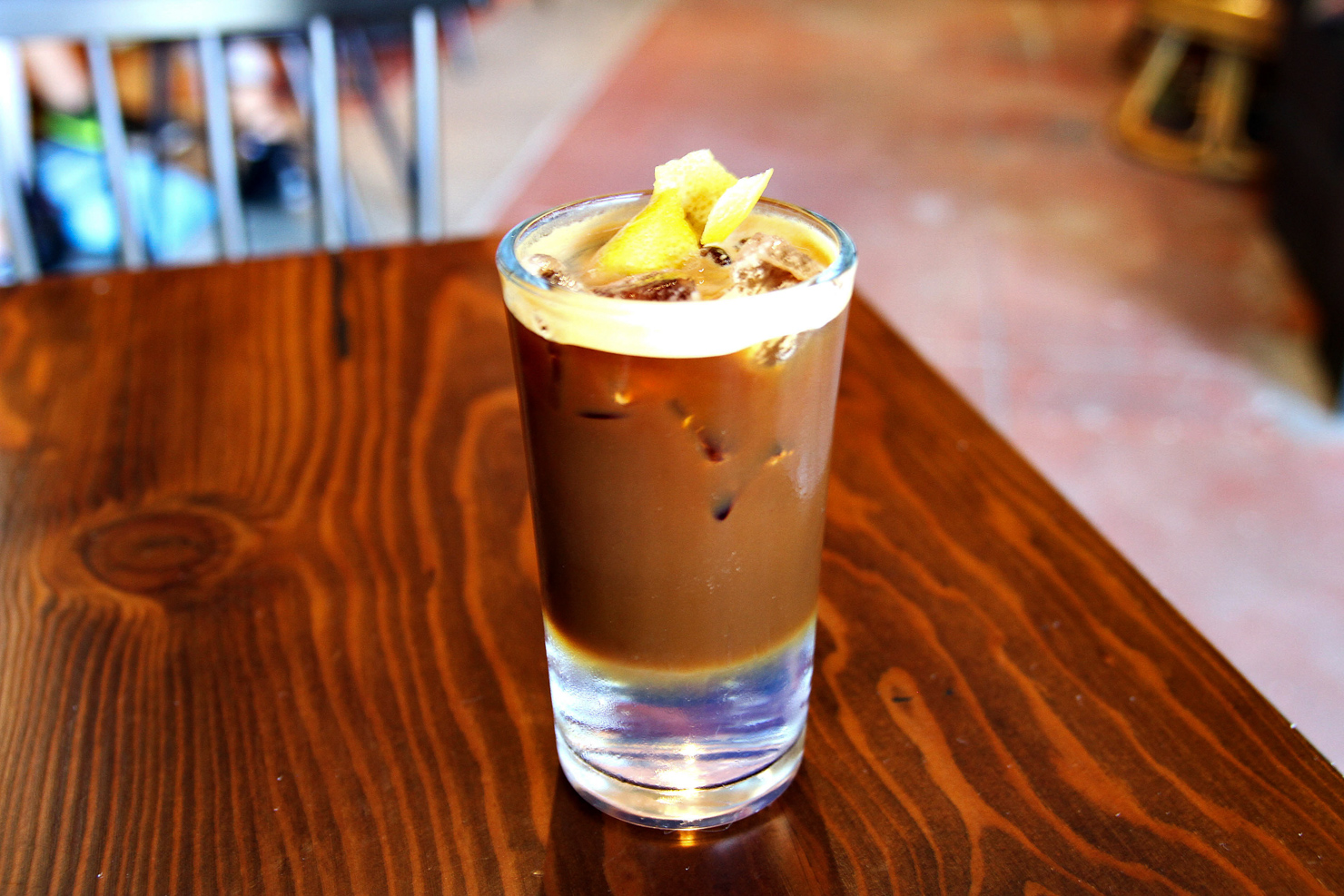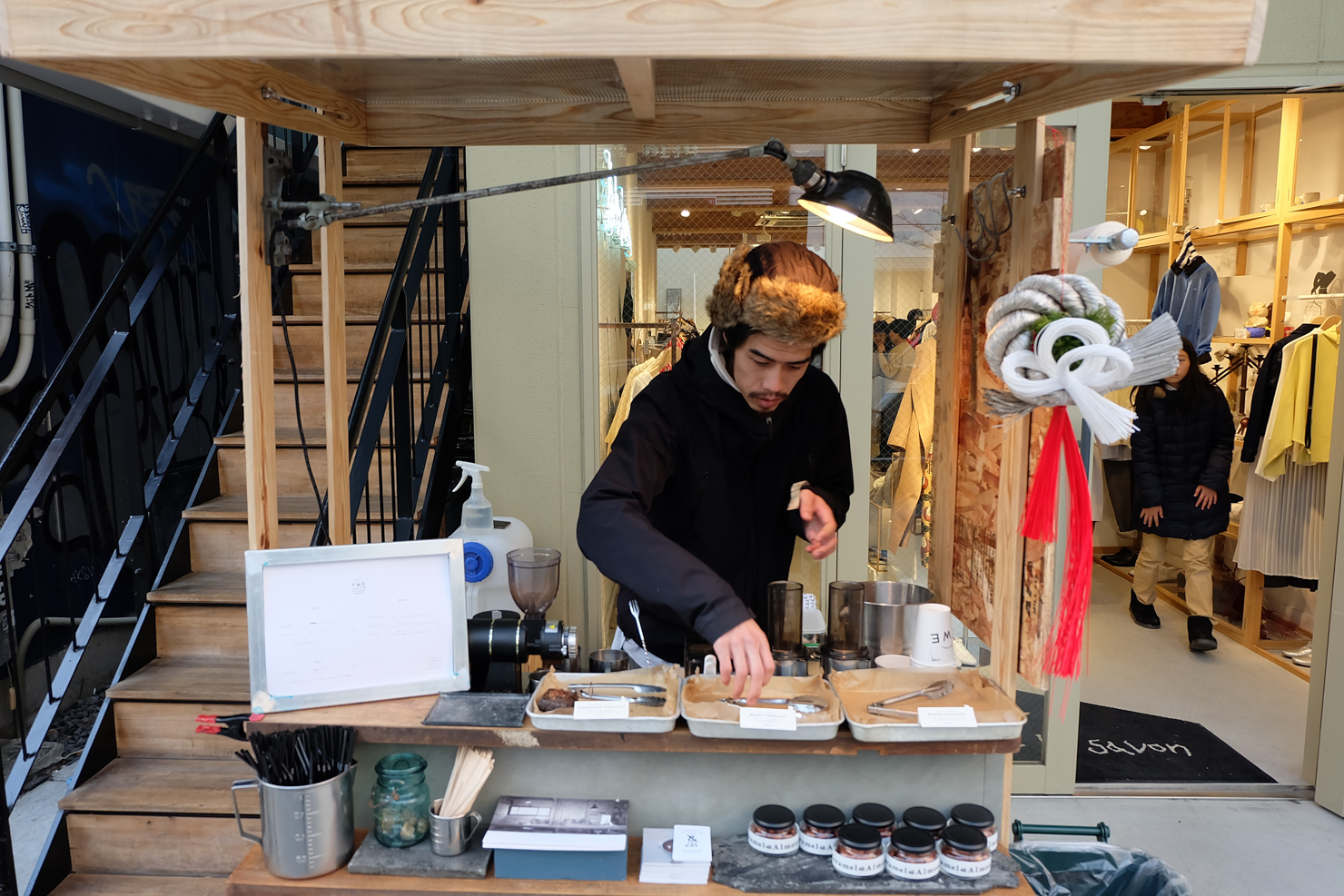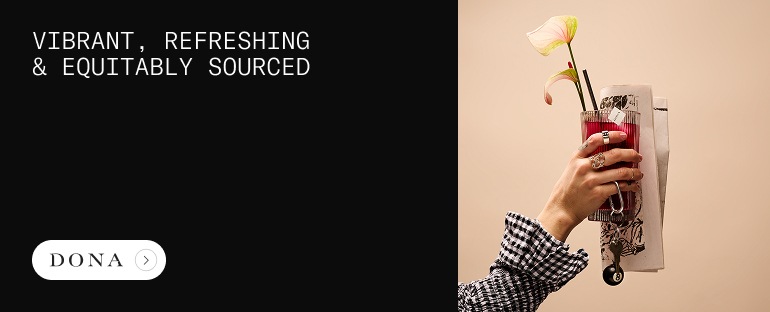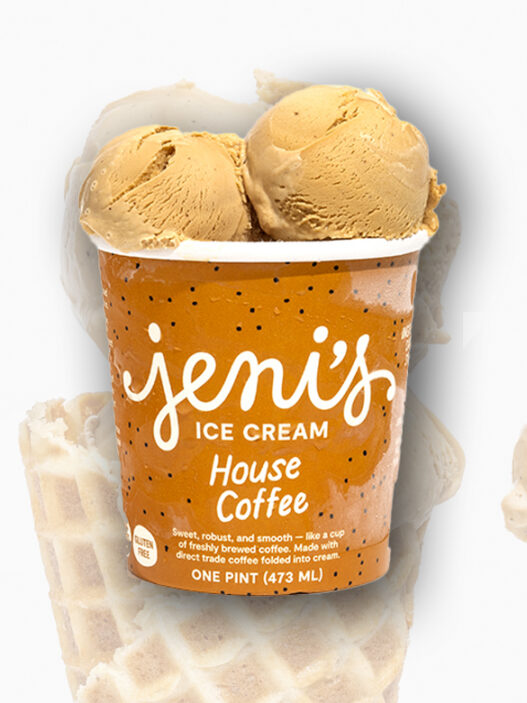Even a native Edmontonian might be surprised to stumble upon Rogue Wave Coffee Company, nestled among a carbon-brush supplier and a taxi depot in a deceptively industrial-looking area just north of downtown. The new roaster’s cafe, which opened in July 2015, is still one of the city’s better-kept secrets, and the only place in town where Rogue Wave’s small-batch roasts are served.
Inside the brightly colored building that Rogue Wave’s cafe shares with four (yes, four) tattoo parlors and several artists’ studios, a large community bulletin board covers the wall in the common entryway. Turn left and you’ll find yourself at Rogue Wave’s wooden counter, where pastries from Knosh Catering (another of the building’s tenants) are displayed beside an impressive array of pour-over equipment. One of the few cafes in Edmonton to emphasize manually brewed coffee over batch brew and espresso, Rogue Wave’s modus operandi, in the words of co-owner Dave Walsh, is to “focus on the pour-over and build from a small spot.” The cafe serves Chemex-, Nel-, and syphon-brewed coffee, as well as cold brew in the summer, and offers espresso pulled from a two-group Synesso Cyncra machine. Even if espresso-based drinks aren’t Rogue Wave’s specialty, my cappuccino is steamed to a perfect temperature.
Though space here is limited, seating is maximized with a long plank table facing the counter and bar seating along the windows facing 114th Street. There’s also space to set out patio tables in the summer; the freakishly warm weather in Alberta this winter means that even in February, a rotation of illustrated tattoo artists drink coffee and chat outside. Inside, the atmosphere is equally casual and communal, with patrons talking to one another and to Walsh, who’s serving customers and making coffee. Though the cafe closes at 5 p.m. during the winter, in the summer they’ll stay open until 7 p.m., allowing them to catch some of the early traffic drawn by Mercury Room, an independent music venue on the corner.
Owners Walsh and Dave Laville have been friends since seventh grade. Their development from aficionados to hobbyists to coffee professionals was—literally—a trial by fire. “We turned out really good roasts in the oven, on a pan, or in a popcorn popper,” Walsh remembers. “We had a beloved homemade roaster called Stubby, and we had a lot of fires.”
After experimenting with coffee roasting for more than 10 years while selling to family and friends, they started Rogue Wave as a roastery in 2014. Now they roast about 300 pounds of coffee per month in a Torrefattore roaster. They’re in the process of expanding their roastery in Northeast Edmonton, renovating the space and adding a North roaster to their arsenal—for which, Walsh admits, “we don’t have the software quite figured out yet,” though it seems such a dive-in-and-do-it-yourself approach lies at the heart of the Rogue Wave philosophy.
Rogue Wave’s focus on independence and experimentation is not unlike other companies—like Iconoclast Coffee, just down the street—that are new to the Edmonton roasting scene. Walsh sees this diversity and individuality as a positive thing for the local coffee industry as a whole, going so far as to say that he would like to see at least three more roasters operating independently in the city. “There aren’t a lot of other businesses you can get into,” he remarks, citing the freedom he feels that Rogue Wave, as a small player, enjoys in controlling quality on a minute level and determining the parameters of its own success.
Walsh explains one of their goals as being that customers coming back to the cafe a few months after their last visit will get a better cup of coffee every time. Rogue Wave sources green beans primarily through Atlas Coffee Importers and Cafe Imports, but Walsh is delighted to note that “in this day and age, you can fire off an e-mail to a farm and buy green coffee that way.” New coffees are often tested right in the middle of the cafe, in a tiny Huky 500 Roaster “made by Mr. Li in Taiwan.”
When I ask what’s new and exciting at the moment, Walsh recommends a pour-over from Yemen. He warns me that the beans are slightly older than they should be; nevertheless, my coffee is sweet with a balanced acidity and tastes of fresh blueberries. It’s enough to convince me to take a bag of freshly roasted Costa Rican beans home. Brewed in my French press, the relatively light roast is full and flavorful, a welcome addition to breakfast—and the local lineup in my coffee cupboard.
Lizzie Derksen is a writer, zine publisher, and coffee professional living in Edmonton, Alberta. Read more Lizzie Derksen on Sprudge.




